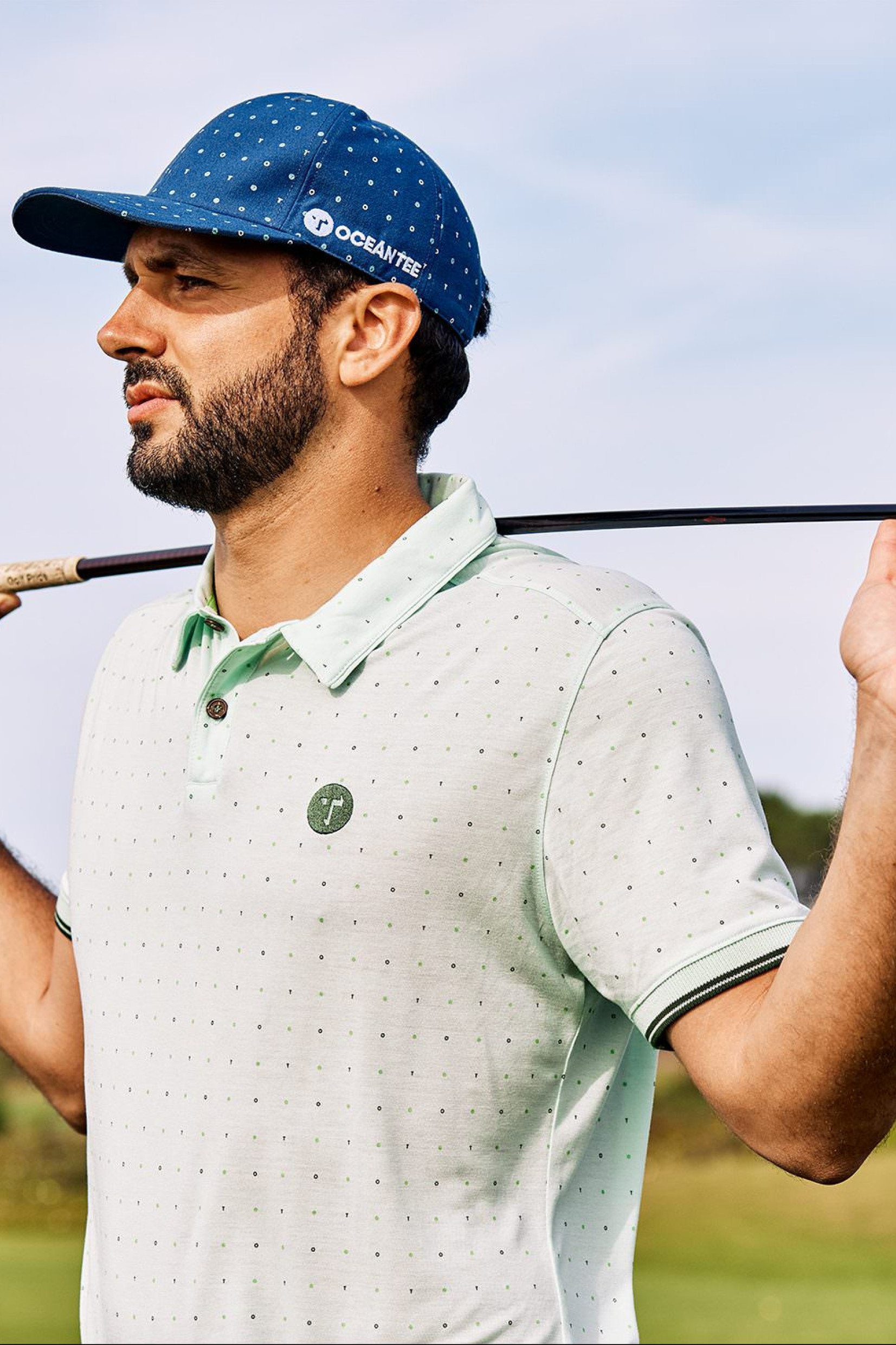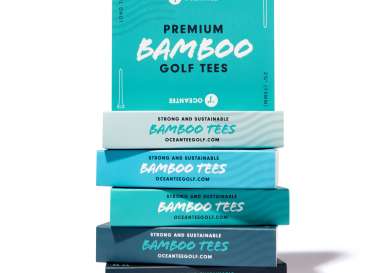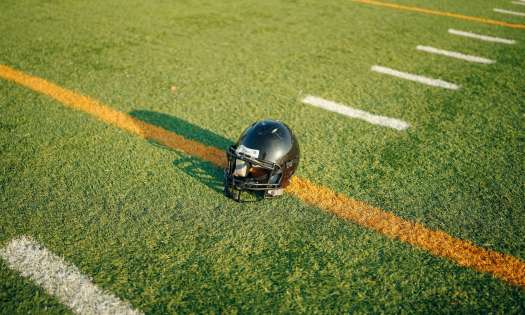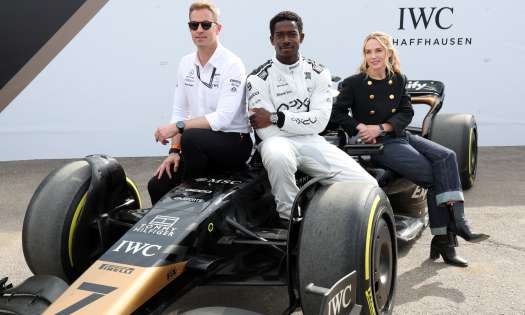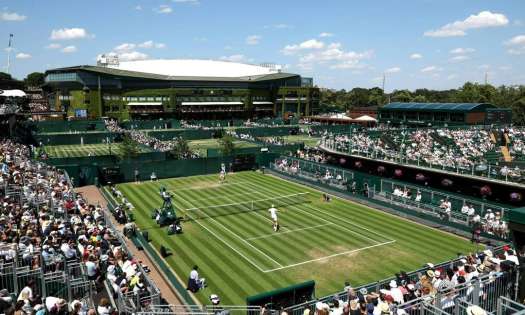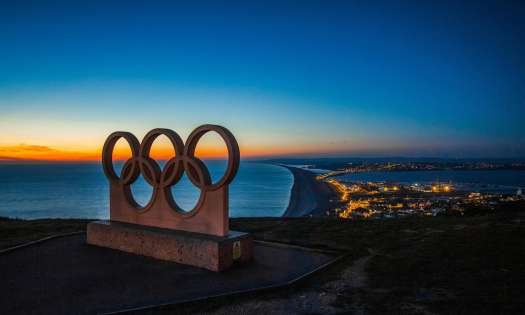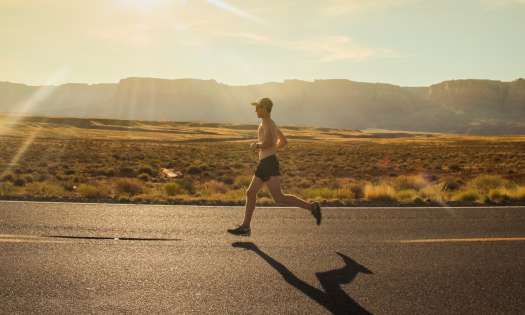Its new cap range uses recycled ocean plastic – exactly three bottles per cap. Unique technology allows the owner to see the difference they are making to the world due to their purchase. Once scanned, a QR code reveals where the plastic waster used to manufacture the cap was collected.
Adds Sandison: "Waste is only waste when we don't do anything with it."
OCEANTEE will also become an Official Supplier at five tournaments on the DP World Tour schedule each year. In addition, there will be educational outreach initiatives for fans at games. The first- a community beach clean- occurred at last week's Genesis Scottish Open.
Max Hamilton, Commercial Director of the European Tour group, added: "The whole European Tour group is on a mission to make significant reductions to our carbon footprint and use our global platform to encourage others to follow suit."
Across the world, through individual leadership and collective action, golfers and golf clubs are embracing sustainability, reducing their carbon spike-marks and contributing to flora and fauna preservation and protection.
Royal Porthcawl in south Wales has created habitats for an endangered newt. Minthis Golf Club in Cyprus have birds' nests in irrigation boxes, and the Glenelg Club in Australia invited diners to 'eat their way around the course by sampling edible indigenous plants and learning about sustainable agriculture.
The Geo Foundation, based in North Berwick in Scotland, is ensuring Golf is keeping up with the latest science and approaches to sustainability. Says Roddy Williams: "Everyone is passionate about golf becoming a leader in sustainability and climate action."
The Foundation supports projects which foster ecosystem enhancement, save water resources, reduce pollution, drive carbon reduction and mitigation and encourage golf club management to adopt best behavioural practices and implement vigilant irrigation monitoring.
Motocaddy, the world's leading powered golf trolley company, has become an Innovation Partner as part of a corporate strategy to develop more eco-friendly products across its popular ranges.
An international non-profit organisation, GEO Foundation is dedicated to helping accelerate sustainability and climate action in and through Golf.
Projects include: re-forestation, trials of wind and disease-resistant grasses, turf and woodland management, recaptured rainwater to reduce water consumption, nest and bat roosting boxes ( Golf du Rhin, France), birdboxes used as distance markers (Hirsala, Finland), GPS course spraying systems, new mowing patterns, the introduction of traditional grassland farming for pesticide-free fairways, naturalisation, heather regeneration, pond creation, sympathetic planting and other pollinator attraction schemes, zero-emission lithium car buggies, member and community education, the re-introduction of the Siberian iris ( Golf Les Iles, Italy), new wildflowers areas and wildlife buffer zones.
Animals benefiting from the golf industry's eco-friendliness include Australian mussels, Egyptian geese (South Africa), dragonflies, partridges, beavers ( Golf Limpactat, Switzerland), trout, Arctic terns, storks ( DGC de Gelpenberg, Netherlands), kestrels ( Portstewart, N.Ireland) and bees (Singapore's Sentia Golf Club and Horsholm, Denmark's first bee-friendly golf club.
The Golf Club Lenzerhende in Switzerland has even built a duck house in a lake, while Scotland's famous Carnoustie Links planted kidney vetch to help the "Blue", the UK's smallest butterfly.
Sustainability golf champions include Genzon Golf Club in China, where staff and members hand-pick weeds and Wego Hot Spring Golf, also in China, which manually collected 102,000 cigarette butts from the course in 2021. A discarded cigarette takes ten years to decompose.
Once, being earth-conscious meant being able to read greens and see hidden borrows to help you putt better. Then, it meant being aware of the fairway and greenside sand traps and keeping out of the long grass and heavy rough. Now, it's about making your planet better and playing correctly. And with the right equipment. With your eye on the future as well as the ball.
Over 95% of golf apparel is made using virgin plastics (like polyester, nylon and elastane). In addition, clothes makers are pioneering environmentally friendly fabrics, materials and processes.
Continues Sandison: "Our premium polos are made from a 52% Merino wool and 48% Tencel blend. They utilise Tencel's Closed Loop* production process and are manufactured in the only production plant in Europe that currently adheres to Greenpeace's production standards."
Adidas are among many sportswear companies producing recycled golf apparel. It has been focused on conserving water, reducing waste and energy efficiency. Replacing conventional cotton with 100 per cent sustainable cotton has a top priority for the global brand, and it has a goal of using only recycled polyester in every product by 2024.
Parkley Ocean plastic - reimagined plastic waste intercepted on remote islands, beaches, coastal communities and shorelines - is used for polos, tapered trousers and half zips.
Glenmuir, the Scottish golf clothing brand which dresses the GB * Europe Ryder Cup team, has the most extensive collection of natural fibre products amongst all golf brands globally.
With around 70% of garments in its latest range produced using Bluesign® or Oeko-Tex® Standard 100 approved fabric and suppliers, Galvin Green won the prestigious global Sports Technology Award for Sustainability for its INSULA™ sweaters made in material recycled from plastic bottles.
Golfers are teeing up eco-friendly golf balls on bamboo tees. Albus Sports ECOBIOBALL is a 100% biodegradable golf ball safe for marine flora and fauna. When exposed to water, it will fully decompose within just 48 hours. These balls only fly about 1/3rd the distance of a traditional golf ball. But they are the ultimate in "green" golf balls as they release fish food from the core.
Traditional golf balls are made of plastic and rubber raw materials that are highly resistant to biodegradation. They are also all plastics with the potential to form microplastics. An estimated 300 million golf balls are lost every year.
"Every product we create has a different sustainable story," says Sandison. "We're working with a not-for-profit group called the Sustainable Angle, who are experts in materials – they put new materials in front of people who want them; fabrics made from 100% ginger, blends of cotton and seaweed."
Based in Berkhamsted, Oceantee's Greenpeace-approved factory is in Lithuania. Its Mosa bamboo tees are sourced from a reserve in Jiangxi Province, subject to strict forestry logging permits. OCEANTEE takes two deliveries per year. By boat.
Jonathan Smith, Geo Foundation's founder and Executive Director, says: "The golf industry must work collaboratively to deliver innovative solutions for climate action.
"Golf is perhaps the sport with the most intimate connection with landscapes, ecosystems and biodiversity. The game is played out in nature, and the experience is better with nature."
Over 39,000 courses globally span an area roughly the size of Belgium, and around 50% of that is natural or semi-natural habitat. Golf also appears in often critical contexts – acting as green oases in towns and cities; protecting sensitive coastal strips; and providing buffers adjacent to wetlands, watersheds, and nature reserves.
An innovative climate action programme helping Natural resources, materials and products contain a wealth of direct and embodied environmental and social impacts. "The goals are to avoid the consumption of non-renewable resources – mainly fossil fuel energy, potable water and single-use materials. With water availability becoming more restricted in many locations; and water, energy and raw materials supply becoming ever more expensive – adaptation and innovation make much business sense.
Golf wants to become a force for good.
The R&A, the governing body of world golf, based at St Andrews, hosts the 150th Open Championship (July 14-17) and has its sustainability guidelines.
Golf is doing its bit, and golfers are trying not to damage the earth. Or the oceans.
